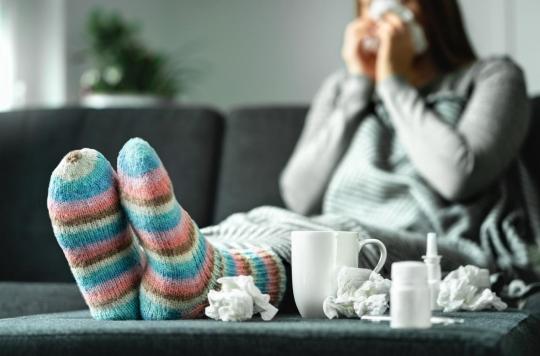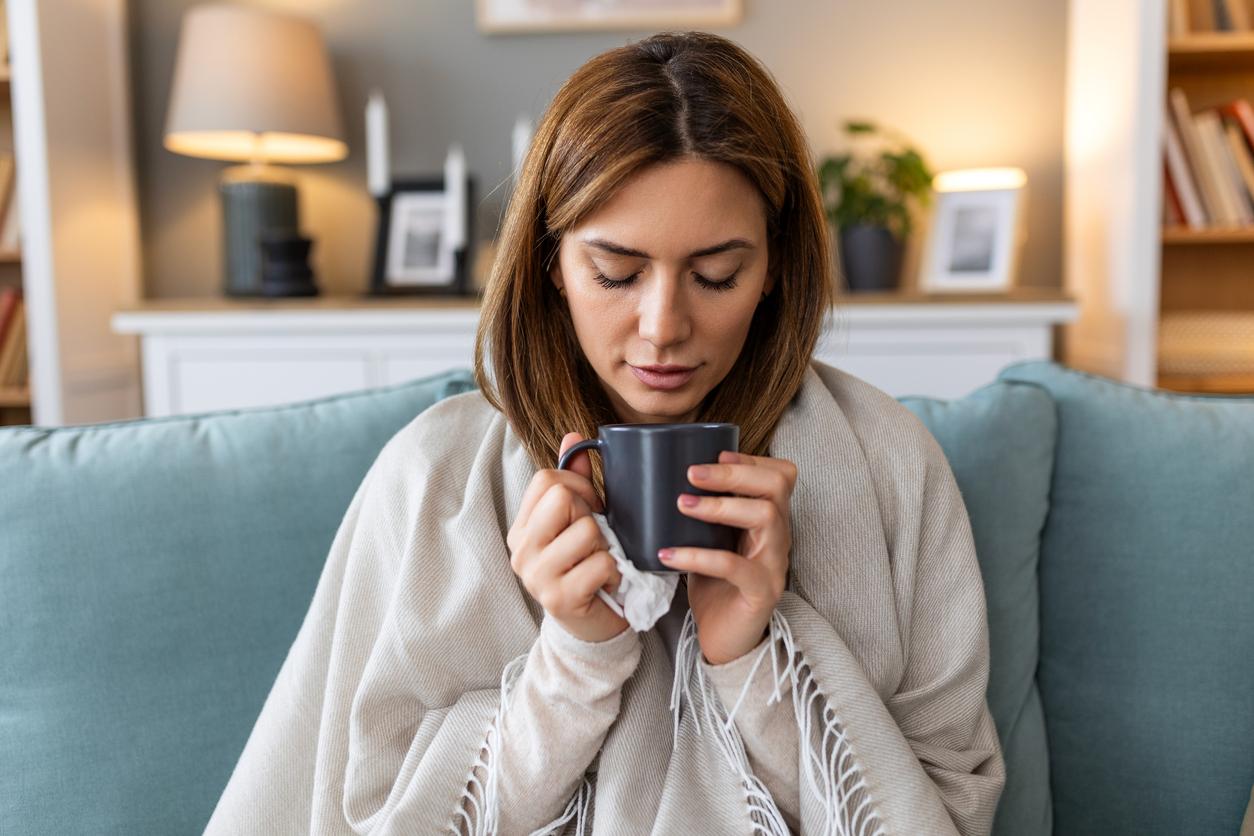If the viruses are present around us throughout the year, the promiscuity linked to the cold increases the risk of falling ill. What’s more, a drop in temperature facilitates their penetration into our body.

The days are getting shorter and cooler. Death in the soul, we pull out the winter coats and scarves. We begin to have an itchy throat, to feel weak and tired and we have only one desire: to stay locked up at home to sleep while waiting for the good weather to return. But why do we constantly fall ill when it’s cold?
To say that we fell ill going out with wet hair because we caught cold, “it’s an urban legend”, explains to the Figaro Dr. Matthieu Calafiore, general practitioner and lecturer at the University of Lille. All respiratory diseases such as pharyngitis, viral angina, acute bronchitis or bronchiolitis are caused by viruses. “The cold is not a vector of transmission,” he insists.
Throughout the year, hundreds of viruses evolve around us, capable of affecting us. There are three modes of contamination. You can be affected by the virus by shaking hands or kissing an infected person, when the latter coughs, sneezes or sputters or even worse, by touching objects that they have previously infected. Moreover, in large cities, the risk of contracting these viral diseases increases due to pollution.
The cold facilitates the penetration of viruses into our bodies
But they reach us more easily during the winter because “we spend most of our time in closed spaces with a certain promiscuity”, continues Dr Calafiore. The concentration of people in the metro, the RER and poorly ventilated office rooms then increases the risk of encountering these viruses.
In addition, the cold facilitates their penetration into our bodies. In France, where the air is rather dry in winter, the mucous membranes dry out and become more vulnerable. “It’s a bit like the principle of the air conditioner in reverse. The air that enters our nose must be warmed before reaching our lungs. This is done through water exchanges at the level of the mucous membrane, which explains why it dries up,” explains the Figaro the pr Bruno Lina, professor of virology at the Lyon University Hospital and director of the National Reference Center for Influenza.
Moreover, when it is cold, our body will distribute the blood to the organs at the expense of the extremities such as the feet, hands, nose and ears. “They cool down, which slows down the speed of the innate immune response in the fight against viruses”, emphasizes Prof. Lina. What’s more, the heart beats much faster to warm up the body and avoid hypothermia, which can be particularly challenging for people prone to heart and respiratory diseases. the risk of myocardial infarction increases too when the temperatures drop. And when humidity and wind get involved, the risks are multiplied.
As for the peaks of gastro, inflammation due to the rotavirus and norovirus viruses, observed during the winter, they could be explained because of the hygiene of the children at this time of the year. The little ones, for example, keep their diapers longer, thus being able to very easily contaminate parents who forget to wash their hands regularly.
Some easy tips to follow to avoid being sick all winter long
Indeed, washing your hands very often, with soap or hydroalcoholic gel, is the number one advice to follow to avoid getting sick in cold weather. The Ministry of Health also recommends sneezing into your elbow, using single-use tissues and throwing them away immediately, wearing a disposable mask, limiting direct contact with others and not touching your hands. eyes, nose and mouth, entry point for viruses and bacteria.
If you go out, dress well. By multiplying the layers, the resistance to cold is much better than if you were satisfied with a single large sweater. It is particularly necessary to cover the parts exposed to the cold (head, neck, hands and feet) as well as the mouth and the nose to breathe less cold air. Putting on good shoes with non-slip soles will also prevent falls and fractures.
And if you prefer to stay caulked at home, remember to ventilate your home well at least 10 minutes a day to prevent germs from accumulating and prevent respiratory infections. Eat properly (five fruits and vegetables a day, let’s remember) and stay well hydrated (with water, preferably not too cold) to fight against the drying out observed in homes due to heating. Finally, remember that to prevent the flu, a vaccine has recently been available in pharmacies.
But if you get sick anyway, don’t go for antibiotics. These drugs target bacteria and do nothing against viruses. In addition, excessive use of antibiotics can lead to antibiotic resistance. This is why, while 9 million French people are affected by angina each year, it is now possible to go to a pharmacy to carry out a test to find out if the disease is of viral or bacterial origin. If the angina is streptococcal, go to your doctor who will probably prescribe amoxicillin (except in cases of allergy) for 6 days as first-line treatment.

















